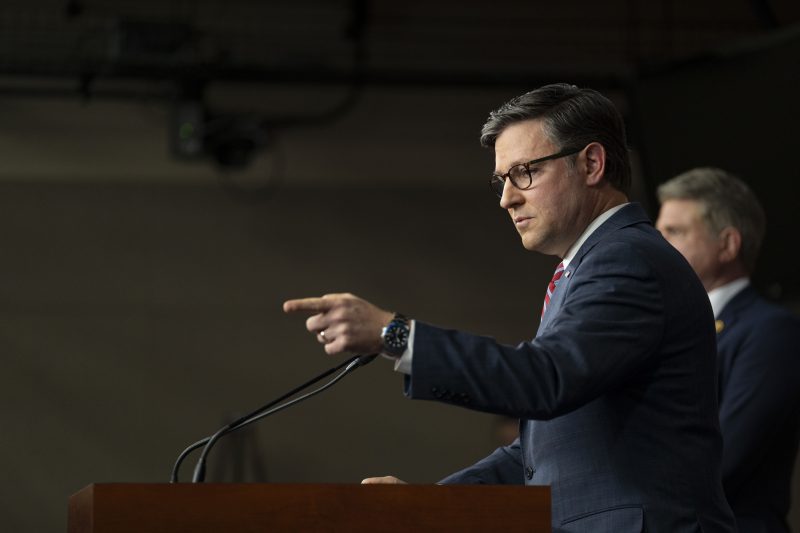House Republicans Facing Challenges in Funding the Government
The ongoing issue of funding the government has been a hot topic among House Republicans, who have been struggling to find a solution to the funding crisis. Despite their majority in the House of Representatives, the Republicans have consistently failed to pass a comprehensive budget bill that adequately funds the government. This failure has raised concerns among lawmakers and the public alike about the ability of House Republicans to effectively govern and manage the nation’s finances.
One of the key reasons behind the inability of House Republicans to fund the government is the deep divisions within the party itself. The Republican Party is a diverse coalition of members with varying ideologies and policy preferences, making it challenging to reach a consensus on budgetary matters. Internal disagreements over spending priorities, taxation, and other fiscal policies have created significant roadblocks in the budgeting process.
Moreover, the ongoing power struggle between different factions within the Republican Party has further complicated efforts to fund the government. The internal battles for leadership positions and influence have diverted attention away from critical budget negotiations, resulting in delays and gridlock in the budgeting process. This lack of unity and coherence among House Republicans has undermined their ability to effectively manage the government’s finances and fulfill their fiscal responsibilities.
Another major obstacle facing House Republicans in funding the government is external pressure from interest groups and outside influences. Lobbying efforts by powerful interest groups, such as defense contractors, healthcare providers, and other industry stakeholders, have exerted significant influence on budget decisions, often prioritizing their own agendas over the broader public interest. These external pressures have further complicated the budgeting process and made it difficult for House Republicans to make independent and objective funding decisions.
Additionally, the current political climate and partisan polarization in Congress have hindered efforts to reach bipartisan consensus on budgetary matters. The deep-rooted ideological differences between Republicans and Democrats have led to a lack of cooperation and compromise in budget negotiations, resulting in frequent government shutdowns and funding crises. The ongoing battles over partisan priorities and policy agendas have overshadowed the urgent need for responsible and timely budgeting, further exacerbating the funding challenges faced by House Republicans.
In conclusion, House Republicans continue to face significant challenges in funding the government due to internal divisions, external pressures, and partisan polarization. The inability to overcome these obstacles has resulted in delayed budget decisions, government shutdowns, and a lack of fiscal stability. To effectively manage the nation’s finances and fulfill their fiscal responsibilities, House Republicans must address these underlying issues, foster greater unity and cooperation within the party, and prioritize the public interest over partisan interests and external influences. Only then can House Republicans navigate the complexities of budgeting and funding the government with competence and accountability.






























